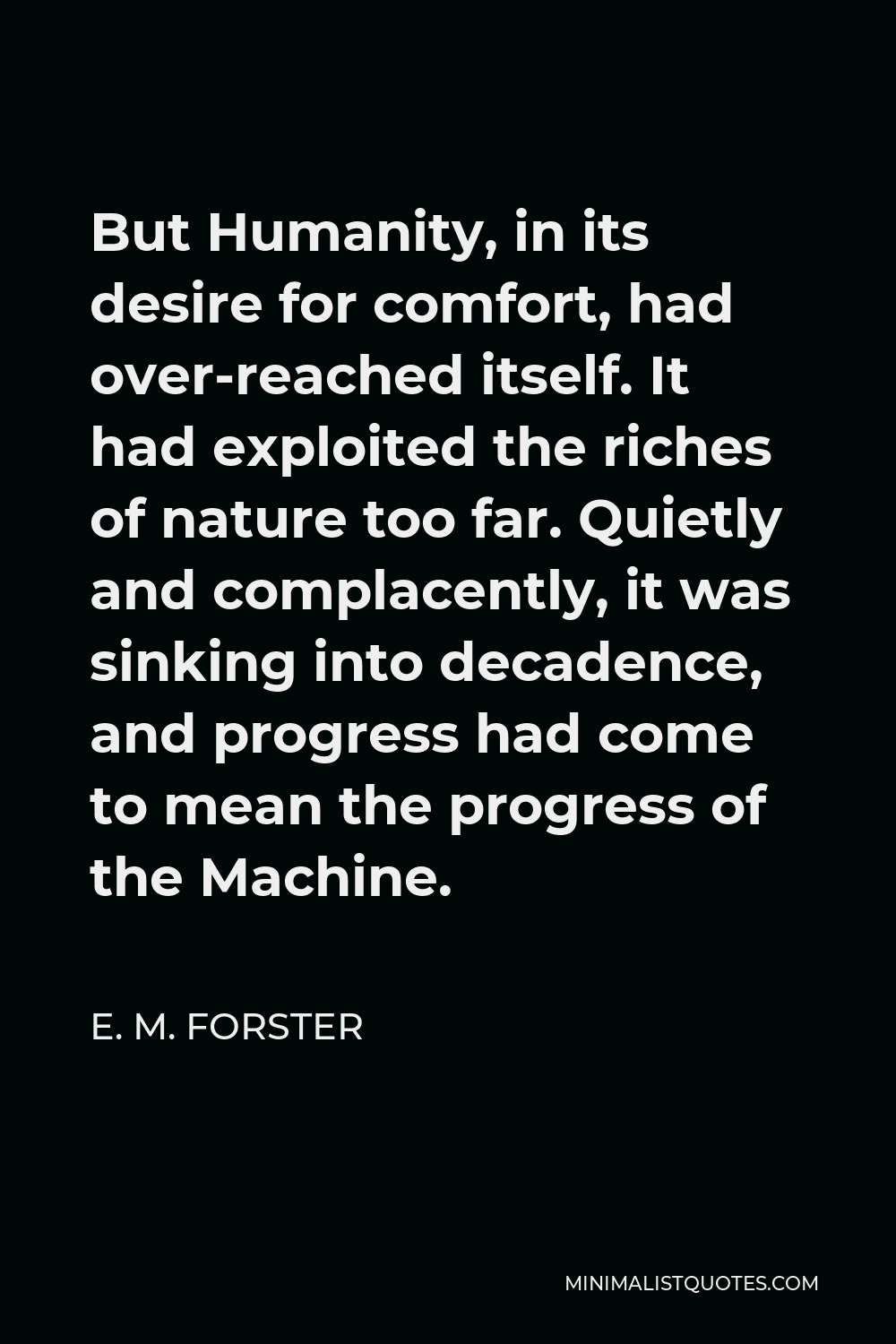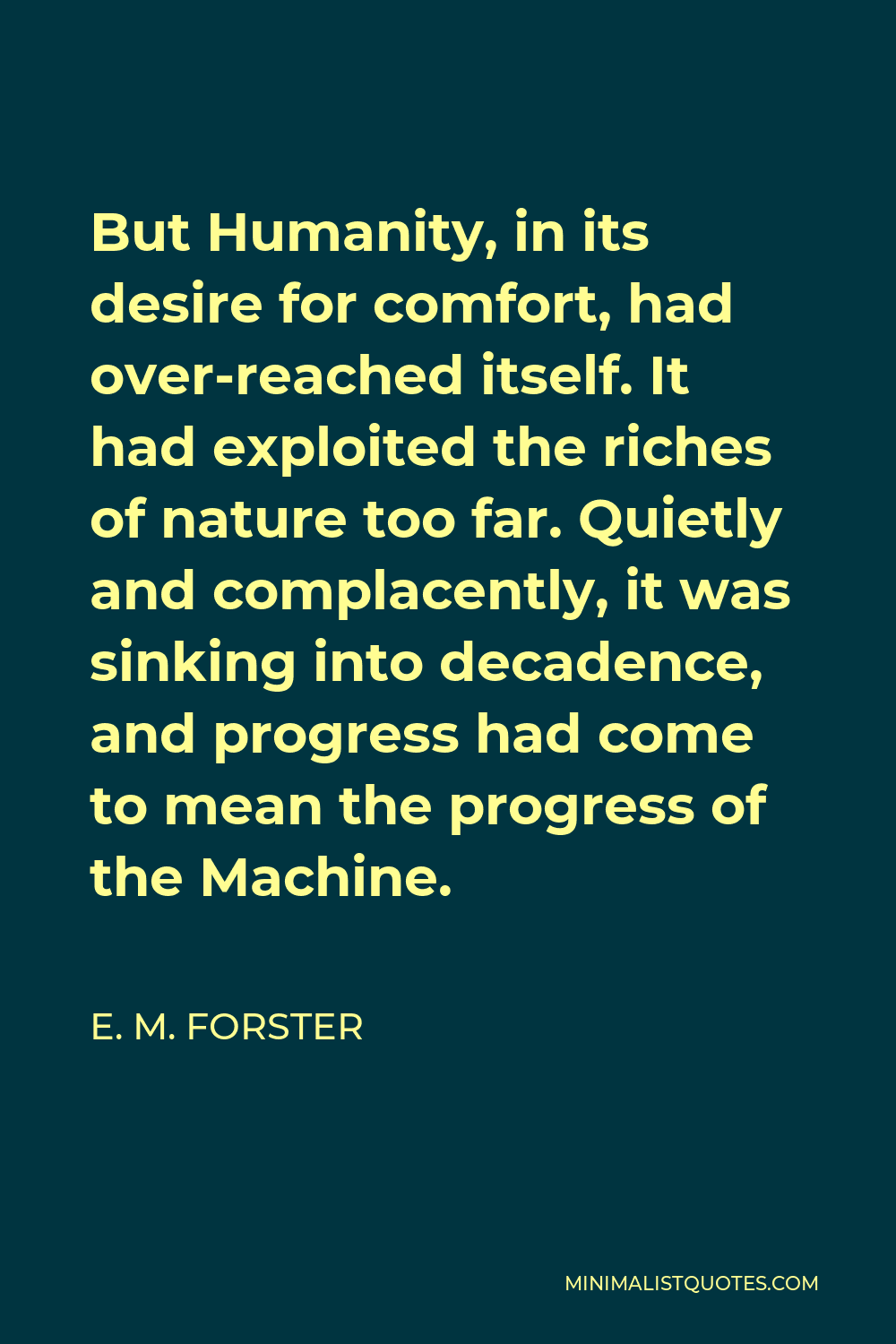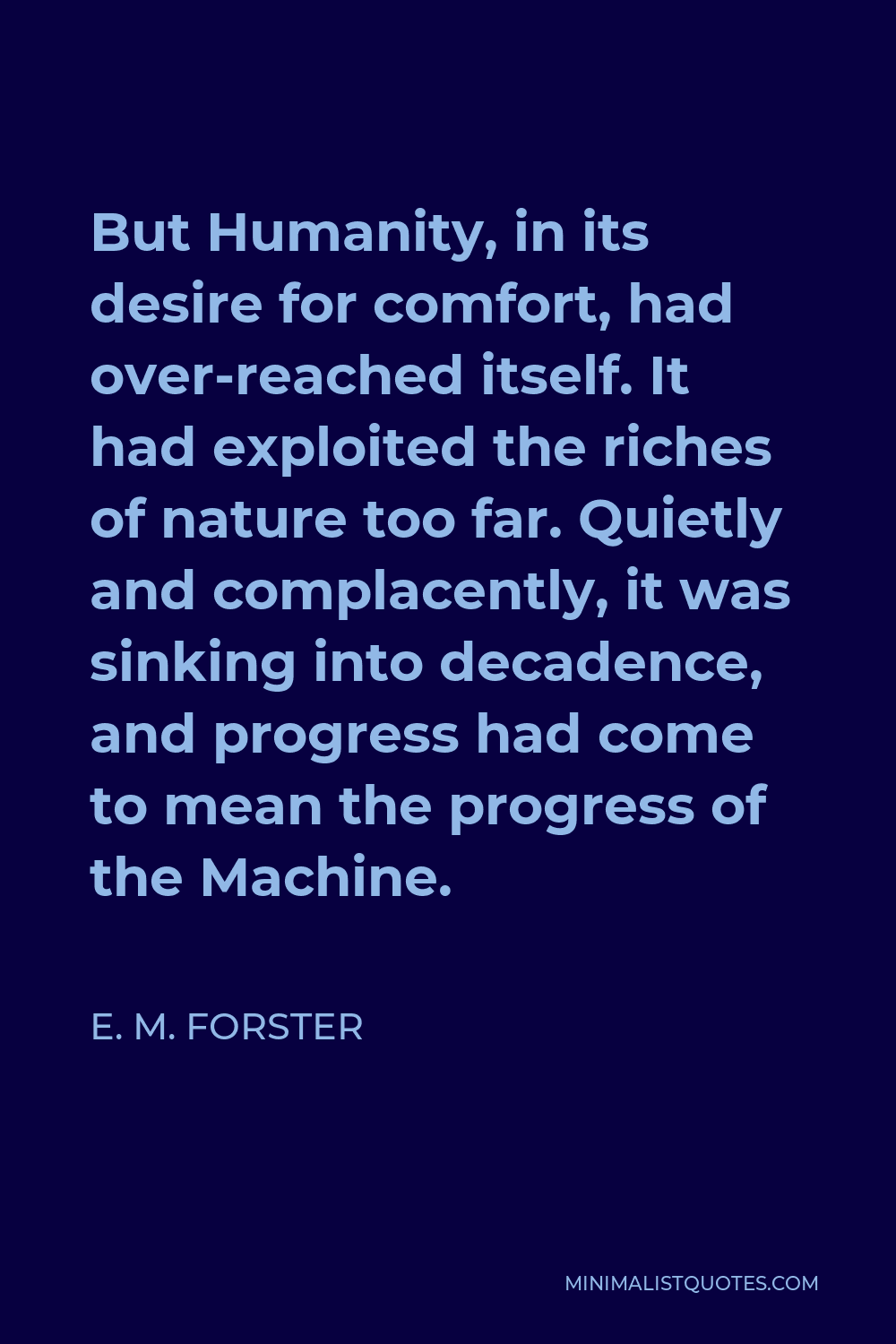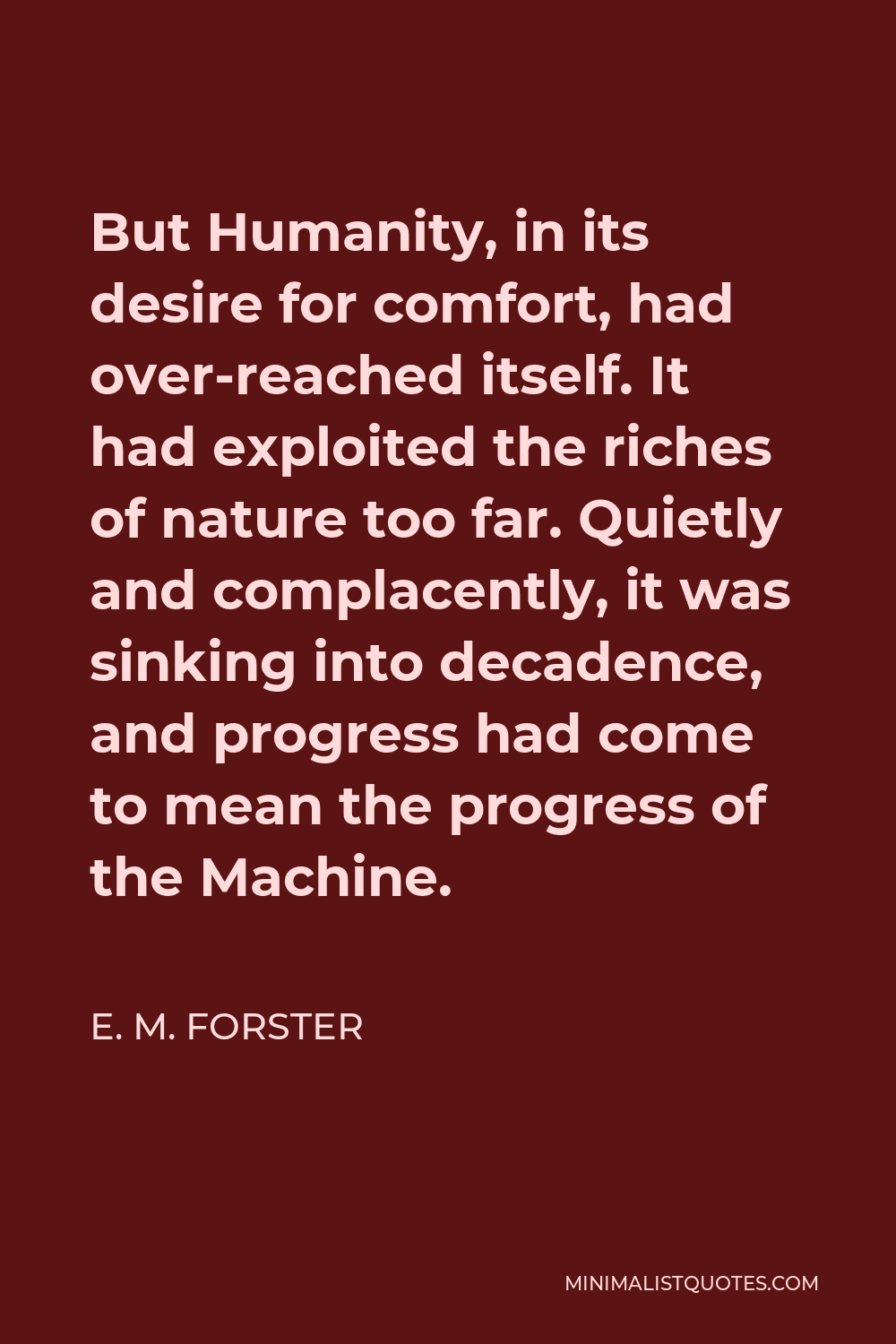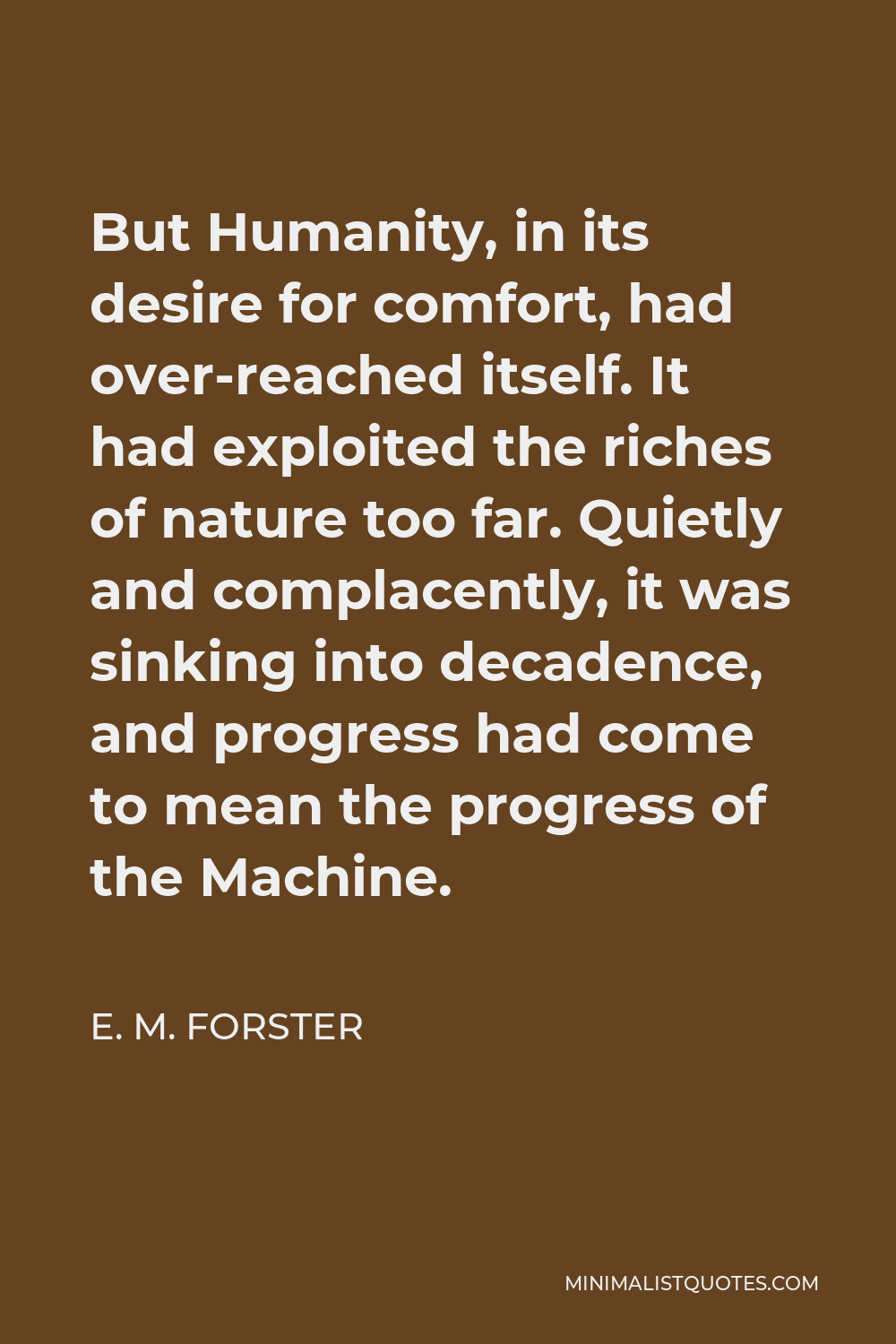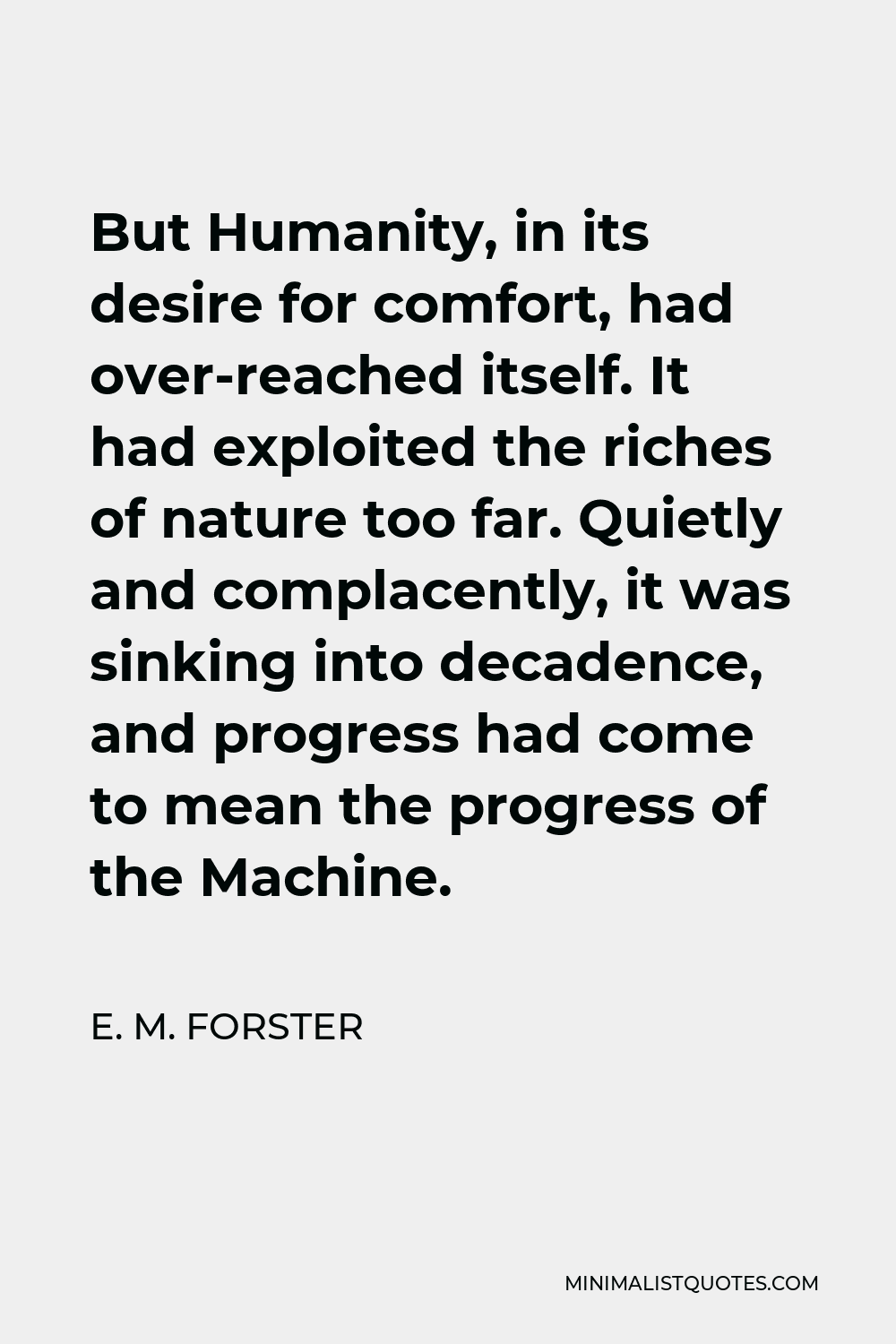Do we find happiness so often that we should turn it off the box when it happens to sit there?
E. M. FORSTERBut Humanity, in its desire for comfort, had over-reached itself. It had exploited the riches of nature too far. Quietly and complacently, it was sinking into decadence, and progress had come to mean the progress of the Machine.
More E. M. Forster Quotes
-





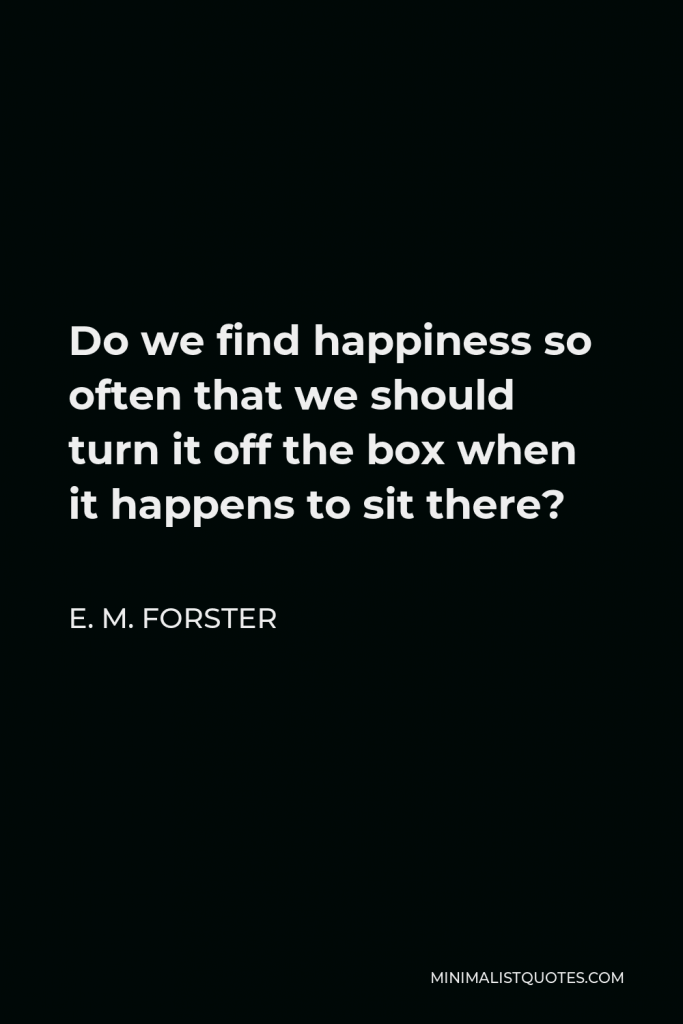

-





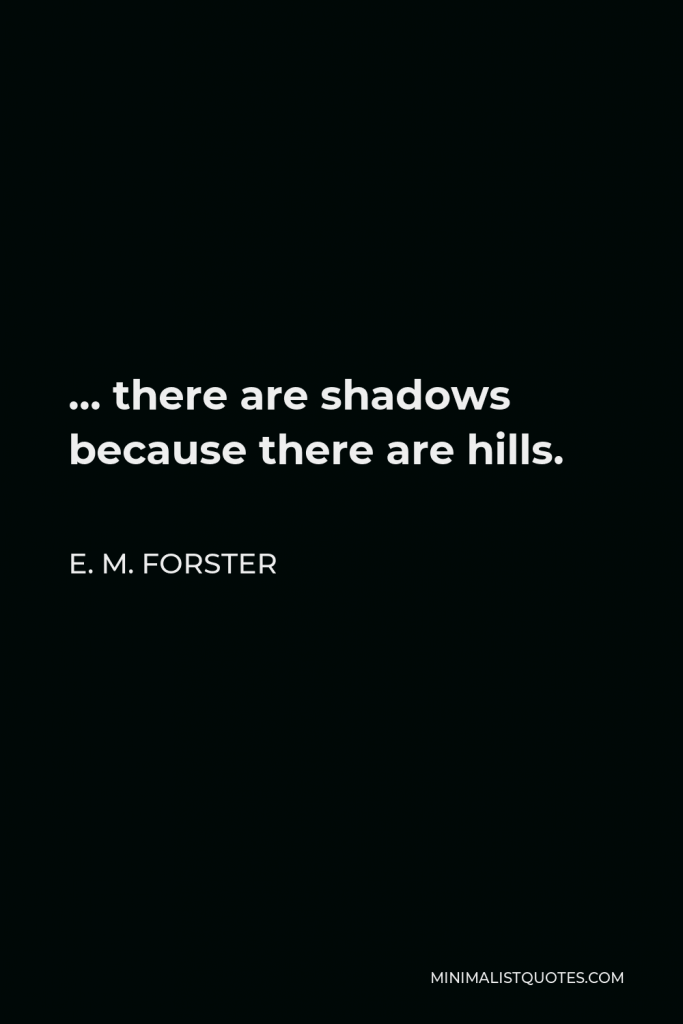

… there are shadows because there are hills.
E. M. FORSTER -





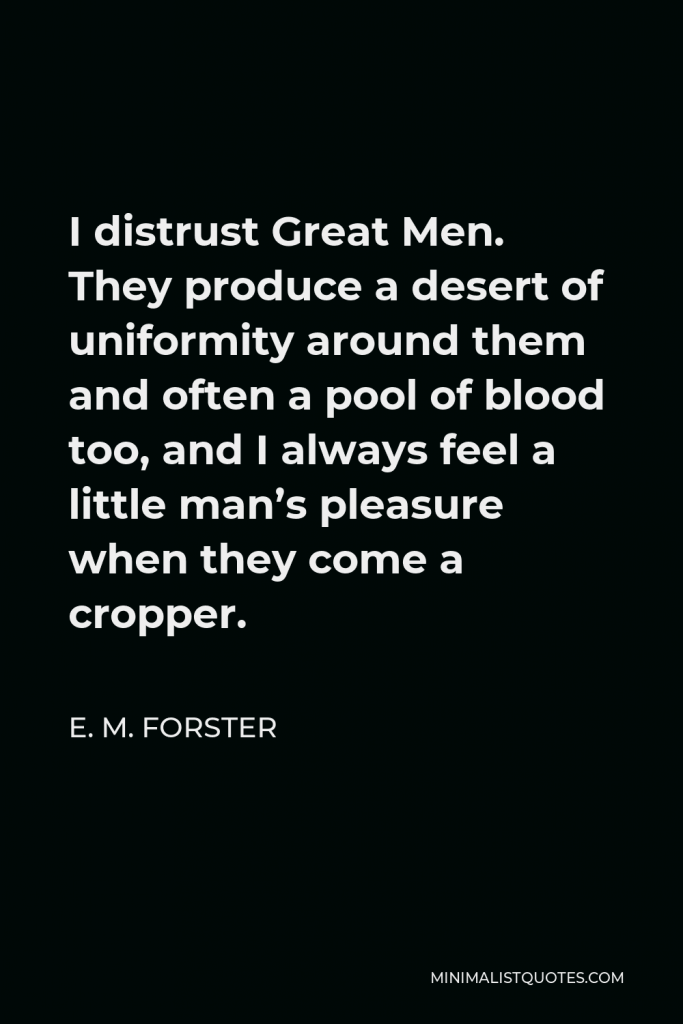

I distrust Great Men. They produce a desert of uniformity around them and often a pool of blood too, and I always feel a little man’s pleasure when they come a cropper.
E. M. FORSTER -





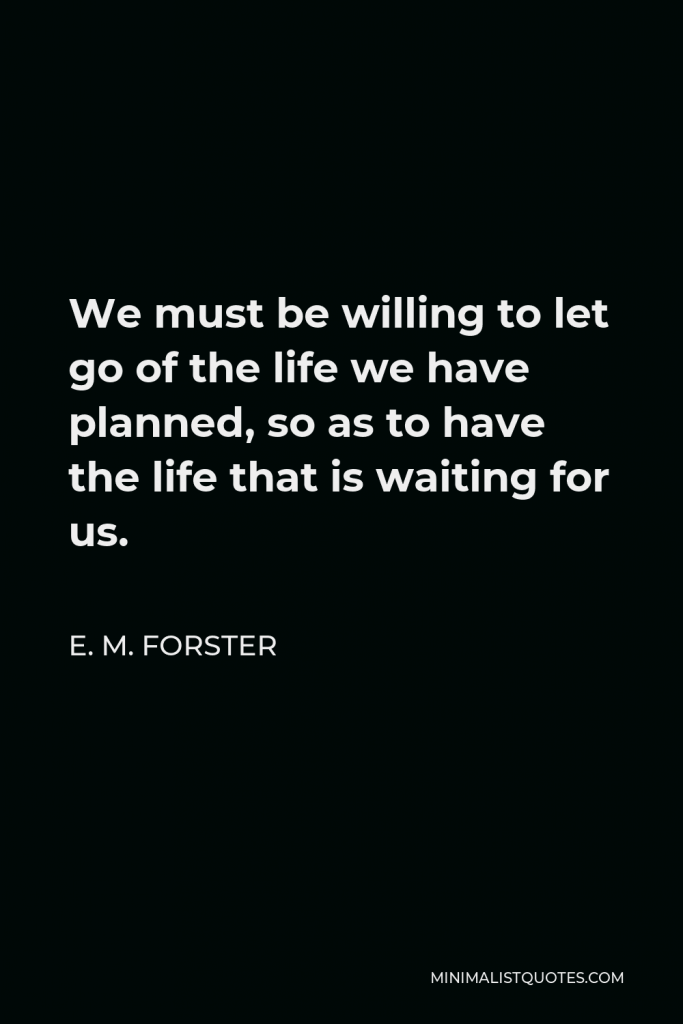

We must be willing to let go of the life we have planned, so as to have the life that is waiting for us.
E. M. FORSTER -





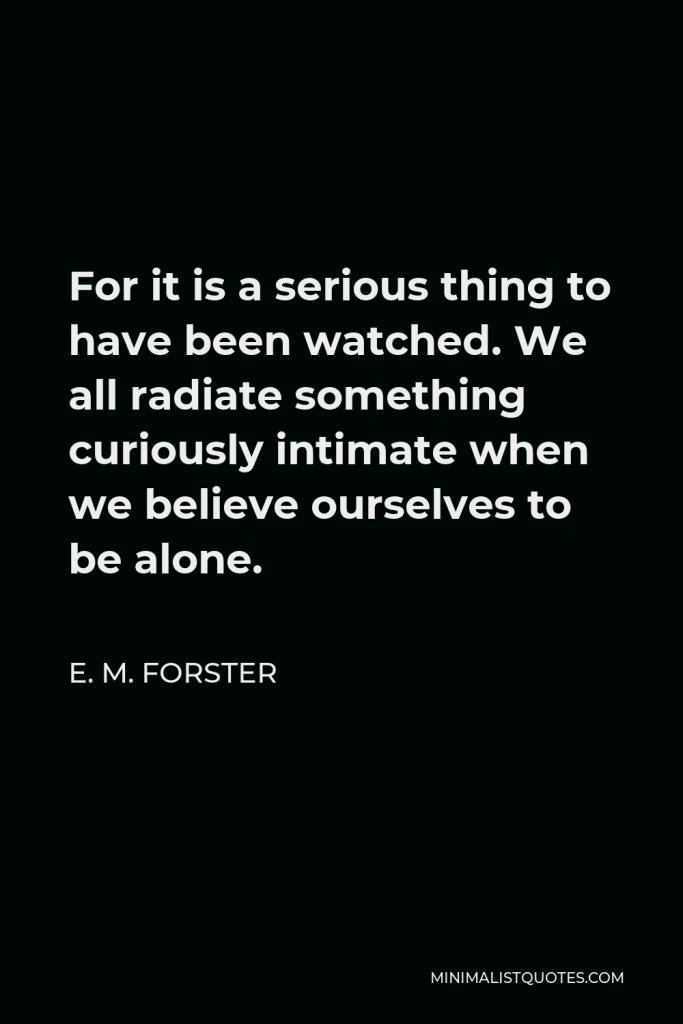

For it is a serious thing to have been watched. We all radiate something curiously intimate when we believe ourselves to be alone.
E. M. FORSTER -





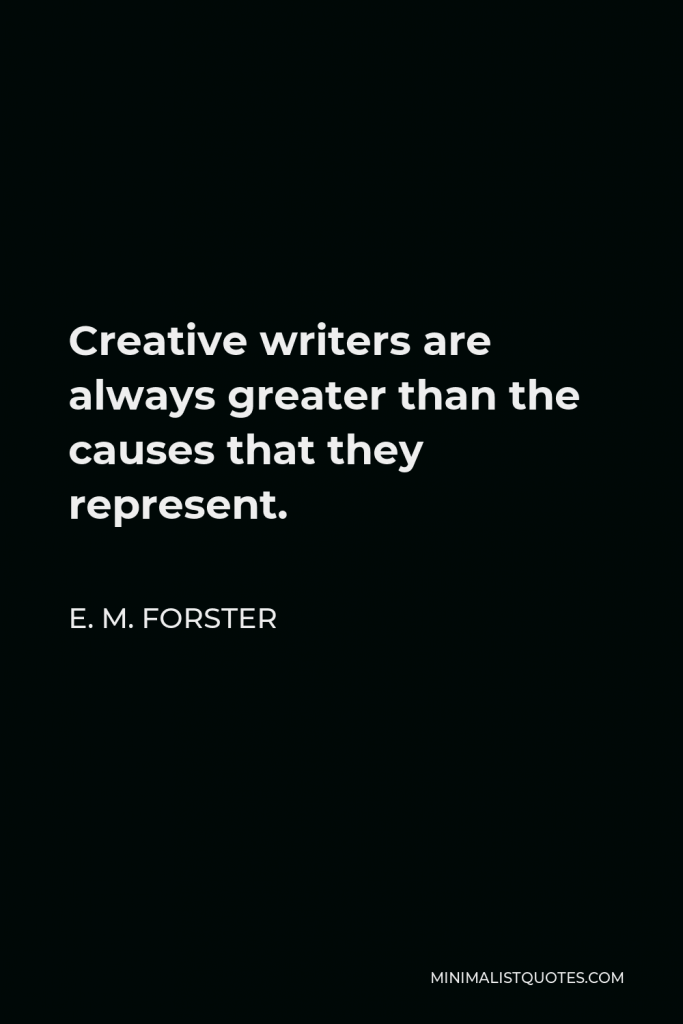

Creative writers are always greater than the causes that they represent.
E. M. FORSTER -





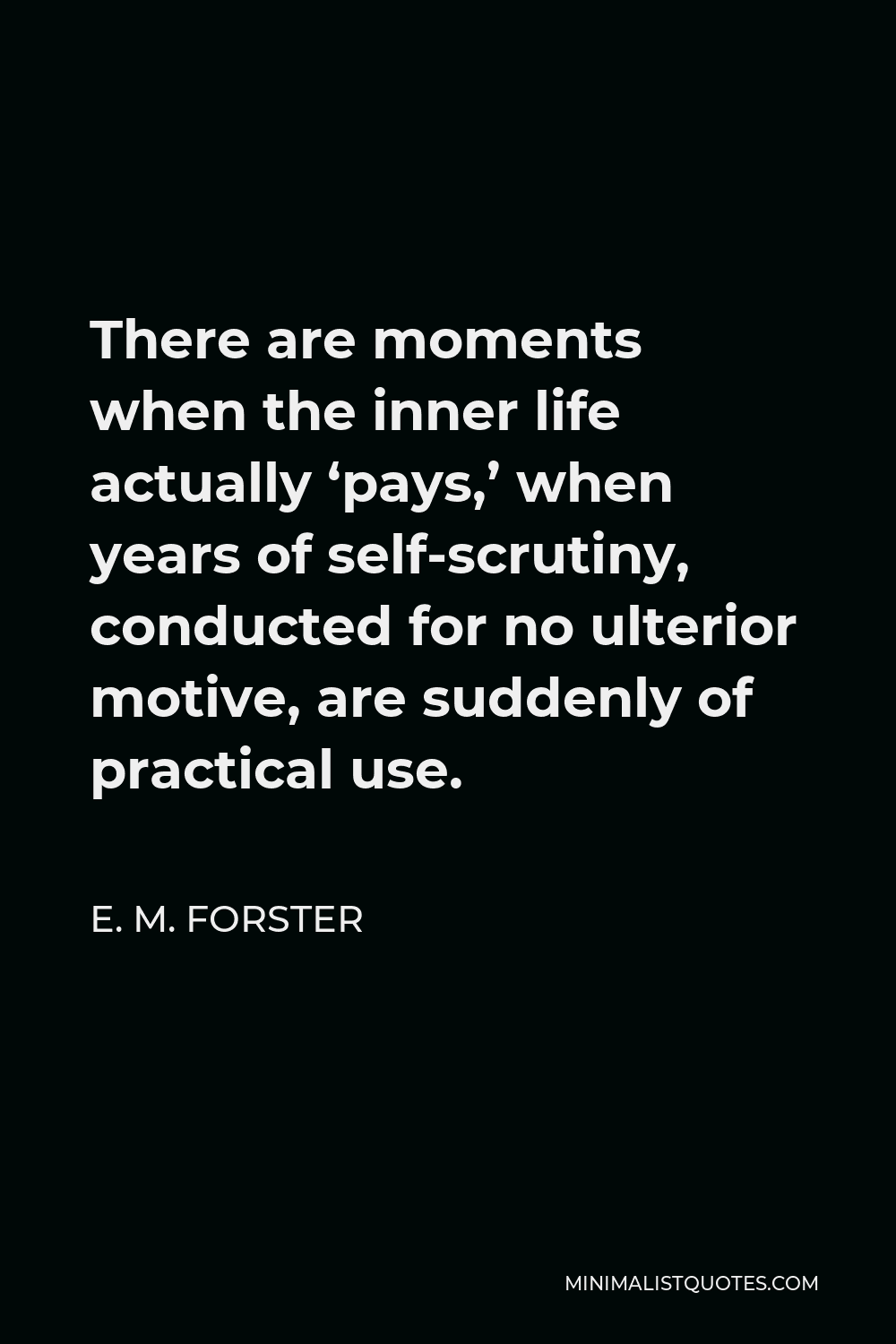
There are moments when the inner life actually ‘pays,’ when years of self-scrutiny, conducted for no ulterior motive, are suddenly of practical use.
E. M. FORSTER -





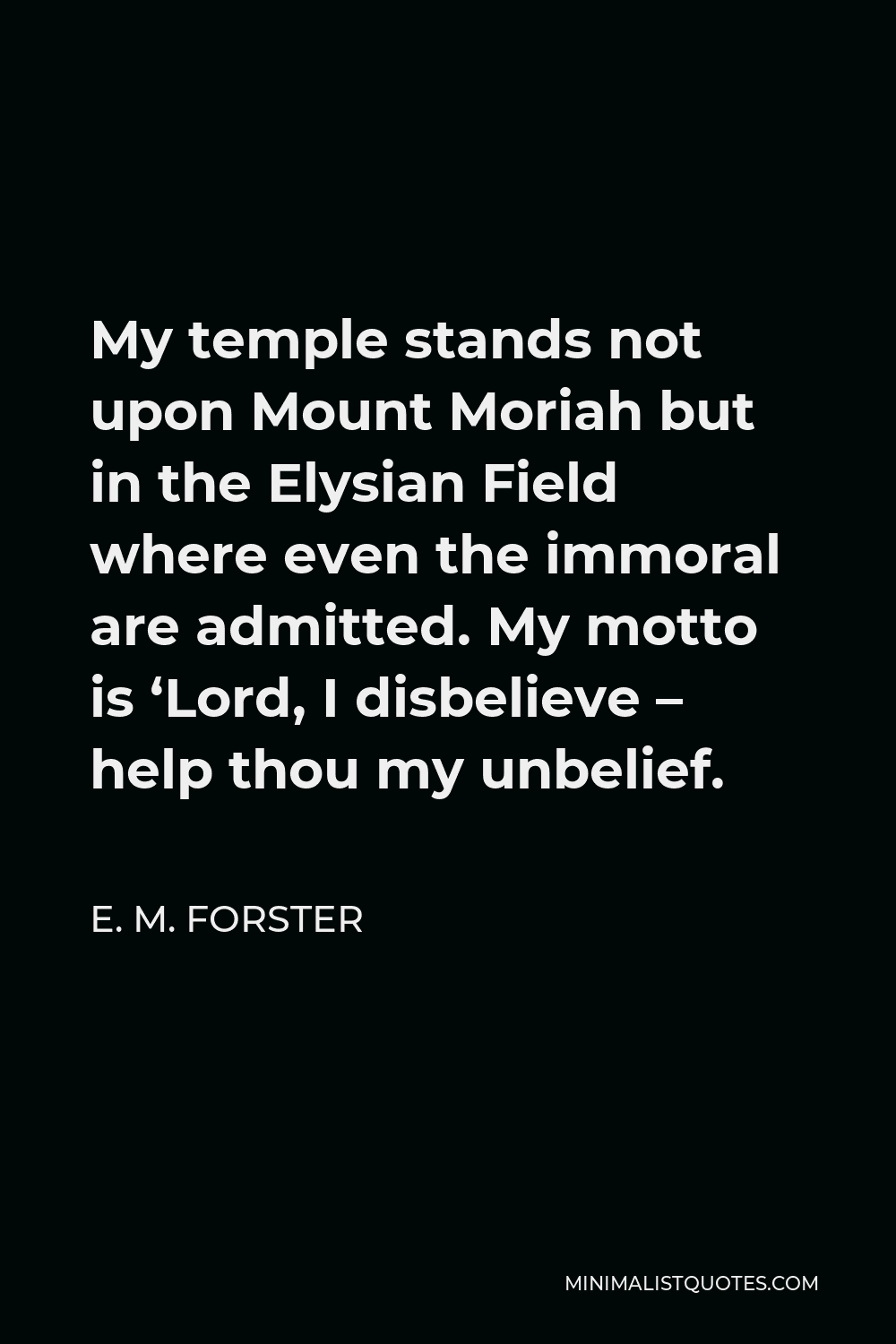
My temple stands not upon Mount Moriah but in the Elysian Field where even the immoral are admitted. My motto is ‘Lord, I disbelieve – help thou my unbelief.
E. M. FORSTER -





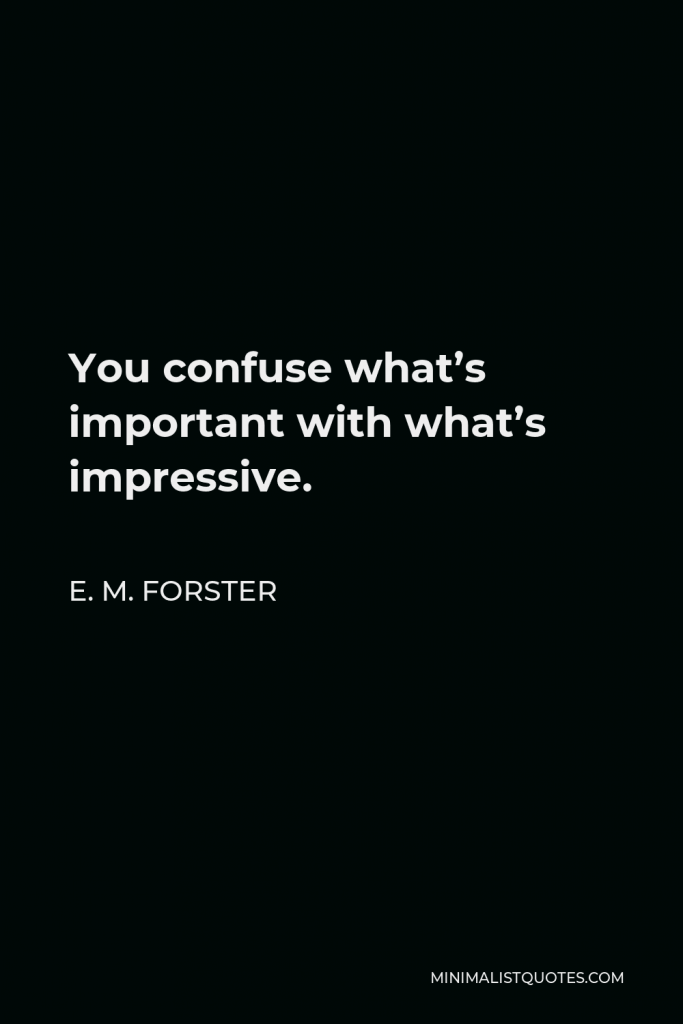

You confuse what’s important with what’s impressive.
E. M. FORSTER -





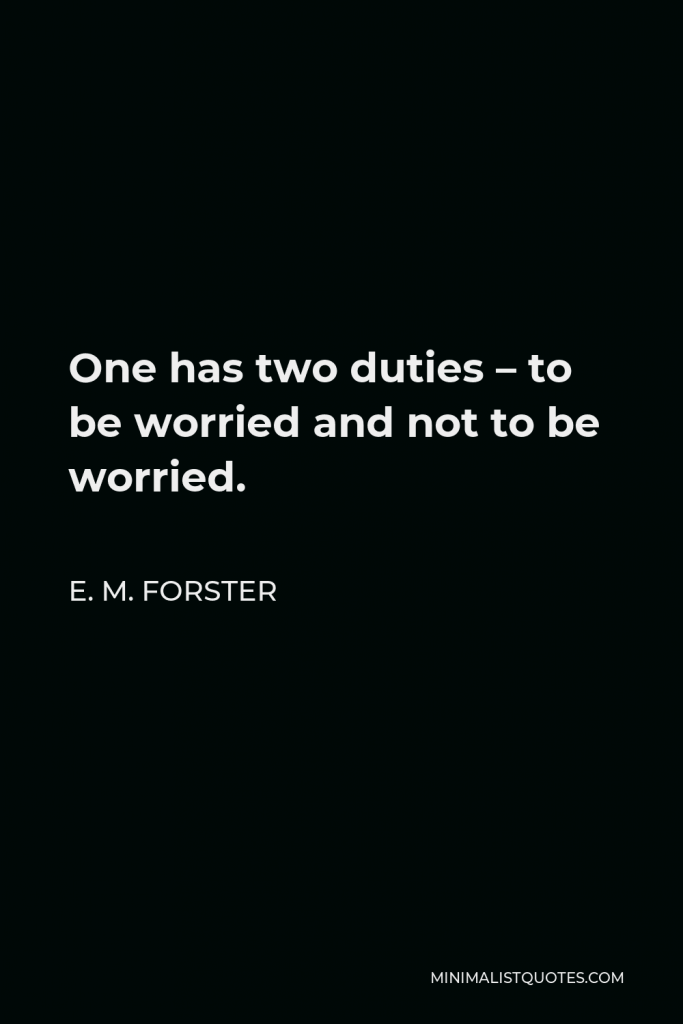

One has two duties – to be worried and not to be worried.
E. M. FORSTER -





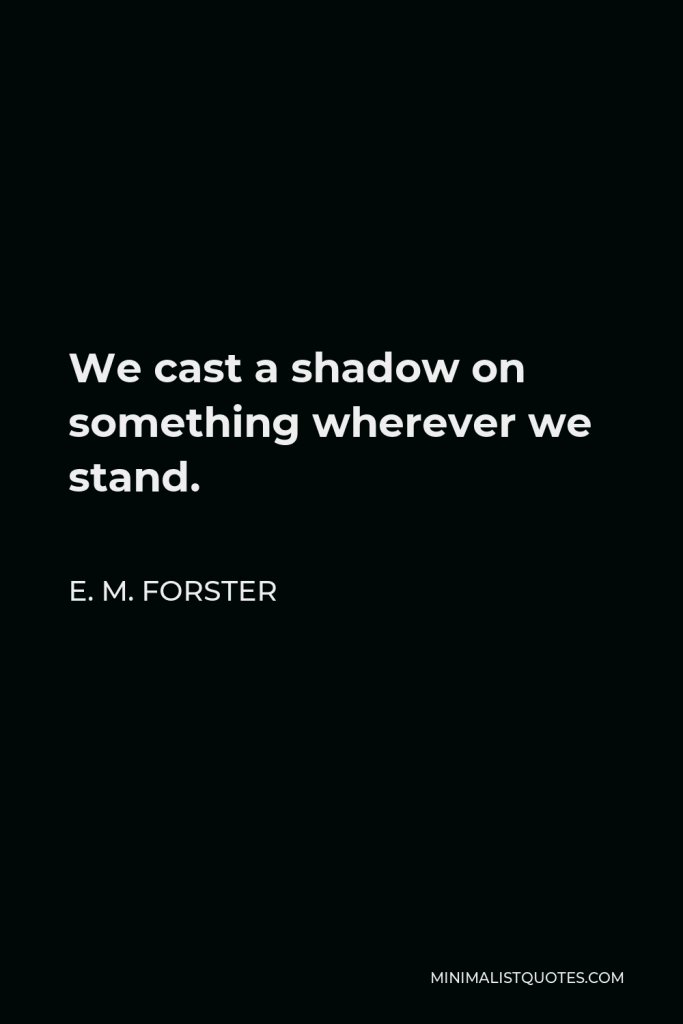

We cast a shadow on something wherever we stand.
E. M. FORSTER -





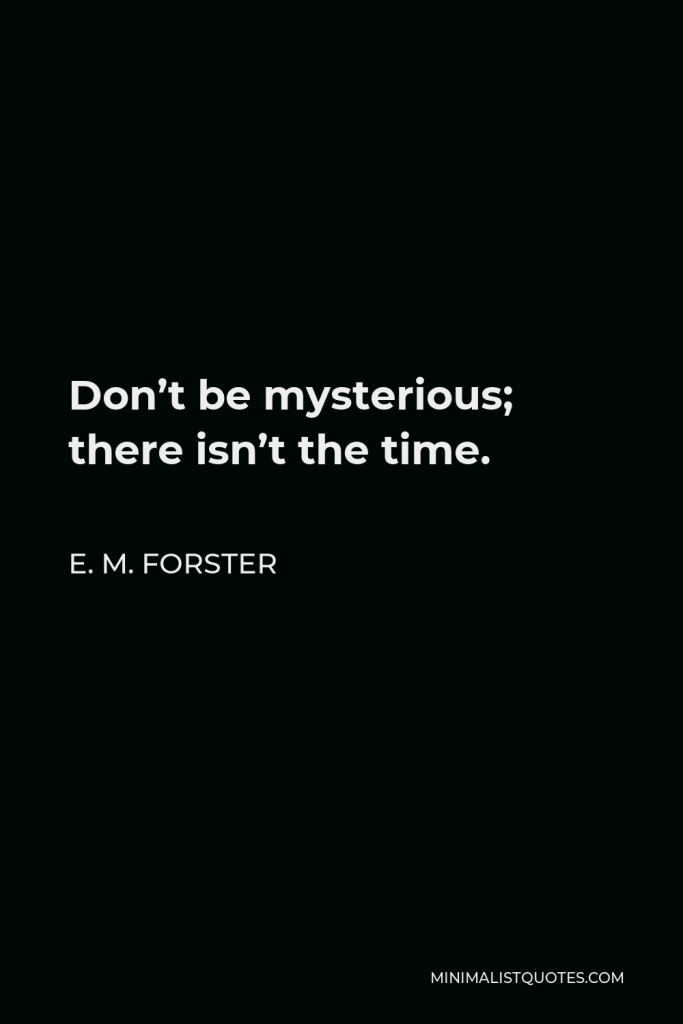

Don’t be mysterious; there isn’t the time.
E. M. FORSTER -







Mistrust all enterprises that require new clothes.
E. M. FORSTER -







I believe we shall come to care about people less and less, Helen. The more people one knows, the easier it becomes to replace them. It’s one of the curses of London. I quite expect to end my life caring most for a place.
E. M. FORSTER -





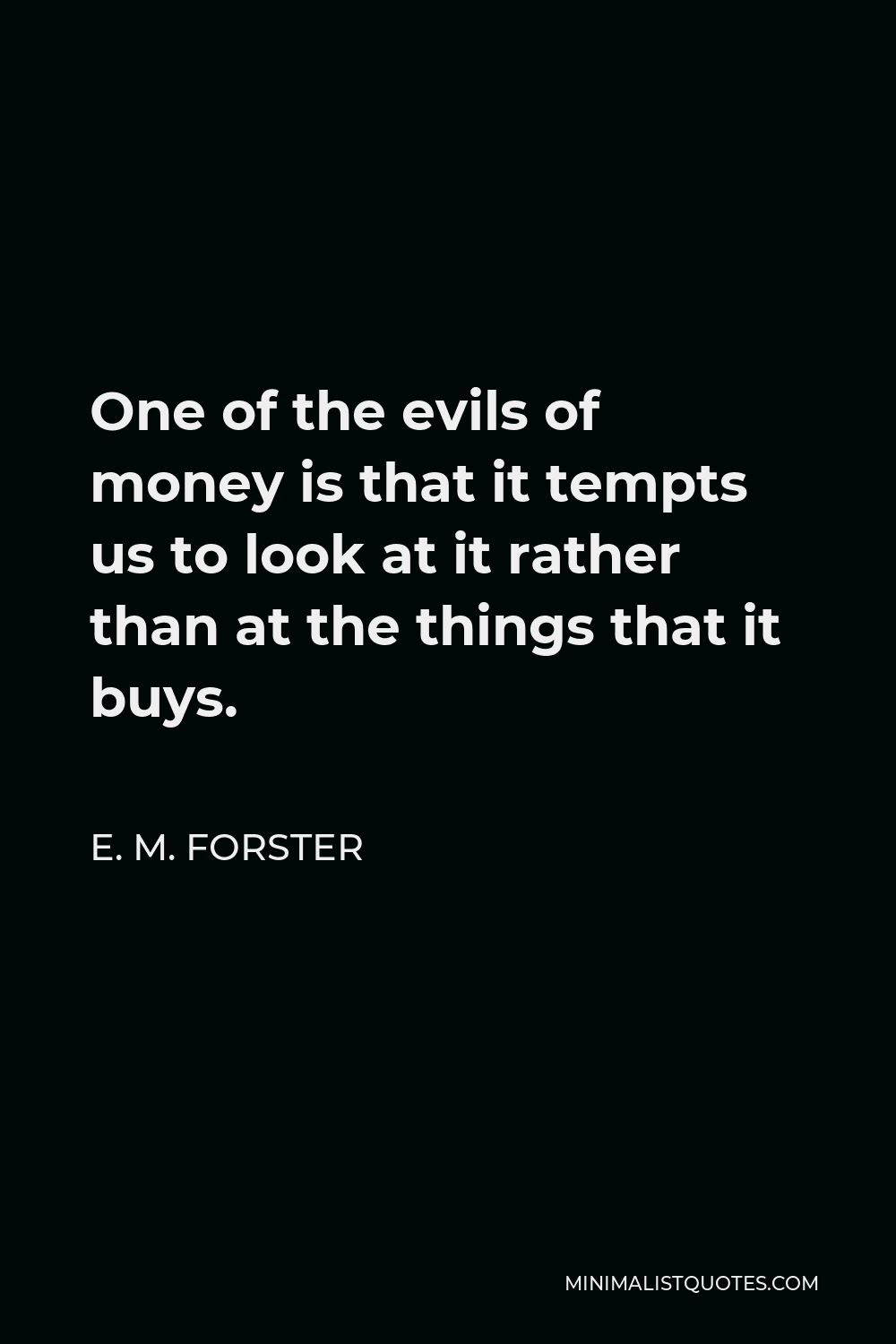
One of the evils of money is that it tempts us to look at it rather than at the things that it buys.
E. M. FORSTER -





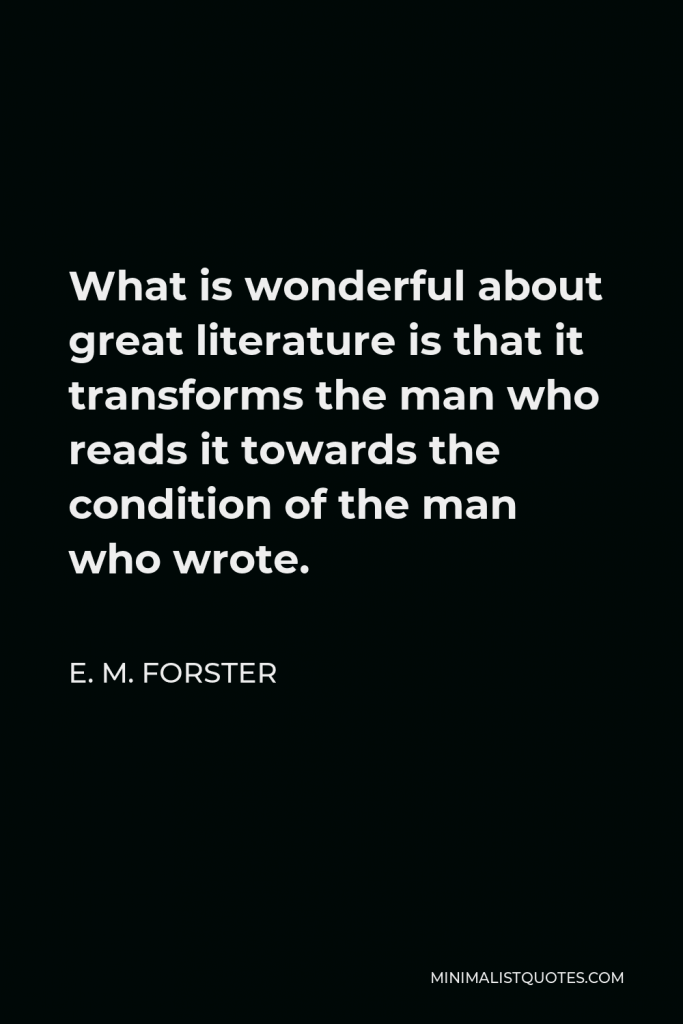

What is wonderful about great literature is that it transforms the man who reads it towards the condition of the man who wrote.
E. M. FORSTER
